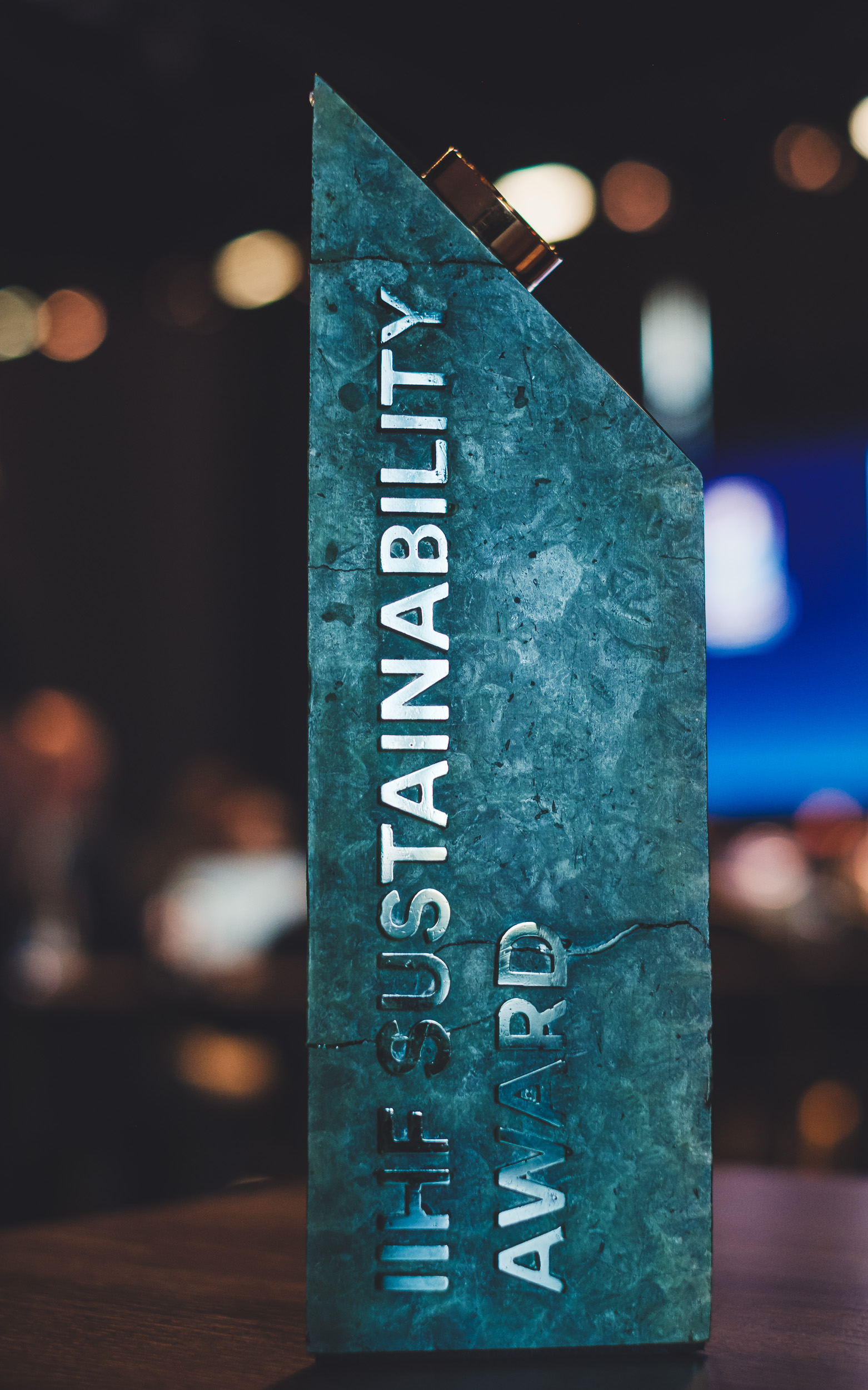IIHF Sustainability
Environment & Social Responsibility Guidelines
The International Ice Hockey Federation, in consistency with its objectives, emphasizes the great importance of human rights and acknowledges the significance of promoting climate action as well as contributing to a sustainable environment around the game of Ice Hockey.Therefore, the IIHF created the IIHF Environment and Social Responsibility Guidelines.
The IIHF urges all stakeholders and contractors to act in accordance with these Guidelines.
IIHF Sustainability Vision
Over the past few years, sustainability has grown more important to the IIHF than ever before. Environmental and social topics are regularly discussed with the top-level management and IIHF Council. To provide orientation and guidance in the field of sustainability, we published the IIHF Sustainability Vision. This document portrays our sustainability goals and should serve as a guidance for all our stakeholders.Many examples from past projects of the IIHF and its Member National Associations have been introduced in the document. Our global ice hockey family contributes to the UN Sustainable Development Goals and the presented projects should serve as best practice examples to other event organizers.
It is our goal to inspire and motivate the readers of the IIHF Sustainability Vision to follow our lead. The IIHF is working to improve its sustainability strategy continuously.
IIHF Manual for Sustainable Events
The IIHF Social and Environment Committee, together with the Consulting Company BSD, has created a 30-page manual for sustainable events. The manual helps to identify simple steps that an ice hockey event can take to ensure a more sustainable event by presenting checklists, examples and links in the area of transportation, waste and littering, energy, procurement and access to social inclusion. Various examples from the IIHF, as well other organizers, deliver an insight into how sustainability can be considered in a sport event.Because the organization of every event impacts the economy, environment and society, the efforts of event organizers can contribute to more sustainable development of our planet. In addition, service providers and the host / local region, can benefit from sustainable events in a number of ways, also exemplified in the manual.
It is the responsibility of the IIHF as well as its Member National Associations, stakeholders and Local Organizing Committees to review and recommend methods to lessen our negative social and environmental impact without adversely impacting the sport itself, whilst also preserving the standards for safety and competition that our events require. In addition, Dr Beate Grupp, Chairperson of the IIHF Sustainability Committee, believes that because organizing a tournament takes a lot of work, many of the social and environmental measures outlined in the manual must be implemented with the hardship of organizing a tournament in mind, and therefore, the IIHF has created the manual, analyzing tournament organization and consequently presents ways where sustainability and environmental awareness can be preserved and / or improved.
The IIHF Member National Associations have been presented the manual at the 2015 IIHF Semi-Annual Congress and meanwhile the brochure has also been translated into Russian and can be found here:
Download the manual here: English / Russian
With this manual, the IIHF aims at making a small step towards a more responsible future.
IIHF Sustainability Award
Each year, the IIHF holds a Sustainability Award Ceremony. During this ceremony, the IIHF recognises and promotes the work of its Member National Associations regarding sustainability. The IIHF awards a 1st, 2nd and 3rd prize for the best sustainability projects launched by the IIHF Member National Associations
The IIHF awards a 1st, 2nd and 3rd prize for the best sustainability projects launched by the IIHF Member National AssociationsThe IIHF Sustainability Award was recognized by the IOC as one of the Olympic Movement case studies on sustainability in 2019.
With its Sustainability Award, the IIHF aims at:
- Raising awareness about sustainability across the sports community.
- Demonstrating and promoting concrete sustainability actions to the ice hockey family and inspire all Member National Associations.
- Motivating and supporting event organisers to become involved with sustainability programmes and initiatives.
Please find all information on the IIHF Sustainability Award here.
In 2019, the 1st place went to the South African Ice Hockey Association for their project called Save Water.
Should you wish to apply for the IIHF Sustainability Award, then please fill out the IIHF Sustainability Award Application Form.
IIHF Sustainability Award
IIHF membership of Sustainability Campaigns
United Nations Sports for Climate Action FrameworkThe IIHF is proud to announce that it became the 32nd member of the United Nations Sports for Climate Action Framework. This is a movement led by the United Nations which was launched for the Sports Industry to tackle climate change.
Please find all information on the United Nations Sports for Climate Action Framework under the following link.
Clean Seas
The Clean Seas campaign was introduced in January 2017 with the objective to increase global awareness of the marine litter issue, and to implement measures that address gaps in waste management.
In the context of the Clean Seas campaign, the IIHF, together with 6 other major sporting bodies, supports the IOC to address the global issue of plastic pollution.
Please find all information on the Clean Seas campaign under the following link.
Awards won by the IIHF
IOC-DOW Carbon Initiative AwardIn October 2019 and in November 2020, the IIHF was rewarded the IOC-DOW Carbon Initiative Award. This award was received by the IIHF due to the concrete actions that were taken by the IIHF to reduce greenhouse gas emissions.
IIHF Case Studies
The IIHF welcomes all efforts from each member of the ice hockey family to increase sustainability.Therefore, the IIHF is very proud to set out the below list with sustainability initiatives and projects.
- 2019 IIHF Sustainability Award winner project South Africa
- Case studies
- Social Activities of the 2016 IIHF Ice Hockey World Championship Organizing Committee: English / Russian
